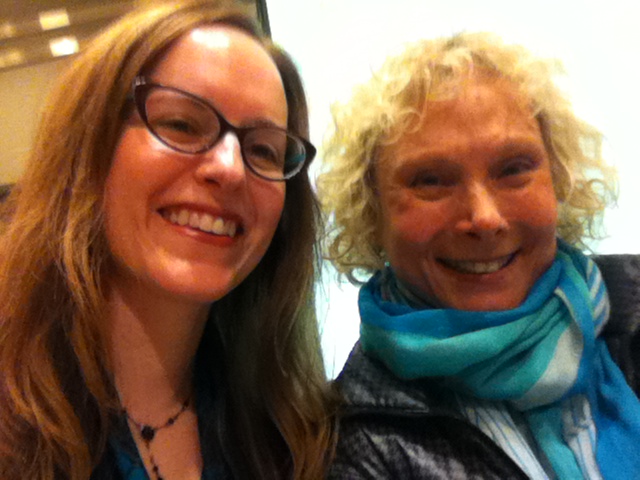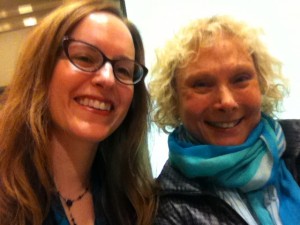Dr Rebecca Sudore: changing focus from planning end of life to preparing for end of life decisions
An Associate Professor In-Residence in the Division of Geriatrics at University of San Francisco, the impossibly young Dr Sudore is dedicated to helping vulnerable older adults and their families make informed medical decisions, especially for advance care planning and at the end-of-life
Dr Sudore, at a University of Toronto Bioethics Speakers series, used this question to illustrate the impossibility of meaningful planning for life’s end:
‘Do you know what you’re going to eat next Tuesday? The answer: ‘it depends’.
And so it is in planning for what’s essentially the unknowable in the end of life journey. Dr Sudore’s research recognizes the possibility of not everyone agreeing and focuses on preparing for decision-making. Seemingly simple questions, says she, open the floodgates.
- Is there anyone you’d trust to make medical decisions?
- Do they know?
- What have you talked about with them?
50%-76% will be unable to make our own end of life medical decisions
The importance of conversations with the surrogate can’t be emphasized enough. Even so,having spoken to dozens of surrogates as part of her research, the findings are distressing and revealing:
Many surrogates don’t want the role.
Sudore thinks it of paramount importance to ask the question of patients:
Are you ok with your surrogate making ‘in the minute’ decisions?
Giving your surrogate permission to override or change your wishes – putting flexibility or leeway right into your Advance Directives – can make the difference between a surrogate adjusting to loss or suffering from Post Traumatic Stress Disorder. Dr Sudore gives, as an example, this discussion with her own grandparents. At the time, Rebecca’s beloved grandpa had been in the hospital after a fall.
“Since none of his own healthcare providers had spoken to him about his preferences, wishes I reluctantly took on the task. He very clearly said: ‘I don’t want any interventions I don’t want to be revived. I’m ready to go’. I turned to my grandma: ‘If Grandpa collapsed now, what would you do?’ Without a beat she said: ‘I’d do everything I could to keep him alive.’ ‘Grandpa, did you hear what Grandma said – in spite of hearing your wishes?’ Said Grandpa: ‘If grandma needs to do CPR etc, she’s the one who has to live with her decisions.’ ”
And so it happened: Grandpa went into the hospital, didn’t survive CPR. Grandma felt she did everything she could, and was at peace.
My own focus is considering the repercussions and consequences of any given treatment, so was happy to hear Dr Sudore make the point:
It’s not the treatment it’s the outcome: How will life be? How weak will I be, will I be able to get out of bed? Take a bath? She calls her fellow providers ‘interpreters’
“I put forward a ‘spectrum’ of outcomes, literally opening my arms to demonstrate the range of preferences and asking where are you on the spectrum: from, ‘life is always worth living’ to ‘I wouldn’t want to live if…’ ”
She then uses reverse teach-back – a term applied when patients repeat – or teach back – to the healthcare professional what’s just been explained to the patients. Reversing teach-back, Sudore ‘interprets’: “Based on what you’ve told me, this is what you would/wouldn’t want.”
‘Irreversible’ or ‘Terminal’ are often hard to determine.
Advance Directives are too vague for ‘in the minute’ decisions – the many unexpected situations where patients preferences change because the context changes. An example:
A woman treated for cancer whose wishes were Do Not Revive, Do Not Intubate (DNR/DNI). When chemo gave her heart failure and doctors thought they could treat this unexpected complication, she changed her mind – the result of a change of context.
Dr Sudore asks questions I’ve been suggesting, in my role on end of life steering committees:
- What are you worried about?
- What are you hoping for?
- What brings you joy?
Since these conversations are still extremely tough for most healthcare providers, Dr Sudore instructs them to memorize a few questions, as one would a script. This, she says, has helped immeasurably. She also strongly instructs healthcare providers to ‘leave your own agenda at the door.’
Dr Sudore then said the words it’s been my mission to impart to those that simply promote having the conversation:
“Patients are not provided the knowledge nor taught the skills to tell (or write) their medical preferences for end of life care.” The hope is that her prepareforyourcare website can change that.
She adds, “By patients, I mean people.”
Suggested reading: Infections in the elderly: are antibiotics always the answer?
Heart Failure Patients and End of Life Considerations

